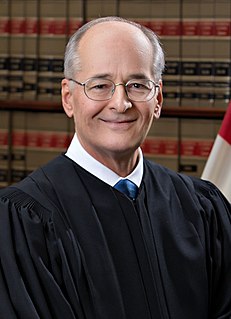A Quote by Al Gore
When you have the facts on your side, argue the facts. When you have the law on your side, argue the law. When you have neither, holler.
Related Quotes
There was once a professor of law who said to his students. When you are fighting a case, if you have facts on your side hammer them into the jury, and if you have the law on your side hammer it into the judge. But if you have neither the facts nor the law, asked one of his listeners? Then hammer the hell into the table, answered the professor.
Yet, when these facts are seen side by side with other facts in the case, it is difficult not to become lost in superstitious awe. Their very absurdity seems to prohibit the use of the words 'chance' and 'coincidence.' For the sceptic there remains only one consolation: if there should be such a thing as superhuman Law, it is administered with sub-human inefficiency.
If you do not assume the law of non-contradiction, you have nothing to argue about. If you do not assume the principles of sound reason, you have nothing to argue with. If you do not assume libertarian free will, you have no one to argue against. If you do not assume morality to be an objective commodity, you have no reason to argue in the first place.
You're English," he said. "And I will therefore make certain allowances for you. I realize you don't understand you shouldn't argue with me, and so I'll explain it to you. Don't argue with me." Incredulous, she said, "That's it? 'Don't argue with me' is your explanation as to why I shouldn't argue with you?

































